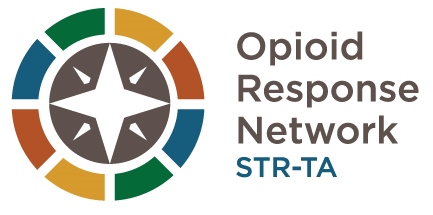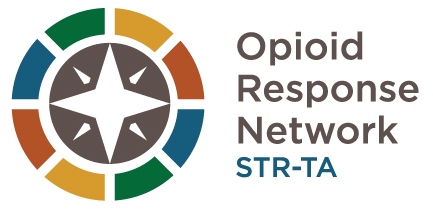America's Opioid Crisis: A Primer for Social Work Educators
-
Register
- Non-member - Free!
- Member - Free!
Over 10 millions Americans misused either illicit or prescription opioids in 2018.1 While this number has decreased since 2015, opioid misuse continues to present devastating consequences. According to the Centers for Disease Control and Prevention,2 roughly 130 Americans die each day from opioid overdose. This constitutes nearly 68% of the total deaths caused by overdose from any substance. Due to the rapid onset of this crisis and medication-assisted treatment serving as the primary treatment modality, many social workers lack the understanding and skills needed to respond to clients and communities dealing with this problem. Through a partnership with the Opioid Response Network, CSWE has developed this free, on-demand continuing education course to help social work educators and practitioners understand the scope, causes, and effects of the opioid epidemic; evidence-based treatments; and the role of the social work profession in responding to this crisis.
After participating in this course, participants will be able to:
- List the impacts of opioids on the brain and the body on individuals who use opioids as well as the negative biospsychosocial consequences of opioid addiction including opioid-related morbidity and mortality from opioid use
- Describe the process of medication-assisted treatment for opioid use disorders and list those medications that are FDA-approved for treatment.
- Identify social work interventions for opioid use disorders on micro, mezzo, and macro levels
- Describe the basic federal and state policy responses to the opioid crisis in recent decades
- Describe the effects of opioid misuse on pregnancy and offspring
Who should participate?
This course is intended for anyone with an interest in substance use as it pertains to the U.S. opioid epidemic but is especially intended for social work educators and practitioners.

Funding for this initiative was made possible (in part) by grant no. 6H79TI080816 from SAMHSA. The views expressed in written conference materials or publications and by speakers and moderators do not necessarily reflect the official policies of the Department of Health and Human Services; nor does mention of trade names, commercial practices, or organizations imply endorsement by the U.S. Government.
1Substance Abuse and Mental Health Services Administration, Results from the 2018 National Survey on Drug Use and Health: Detailed Tables. Retrieved from: https://www.samhsa.gov/data/sites/default/files/cbhsq-reports/NSDUHDetailedTabs2018R2/NSDUHDetTabsSect1pe2018.htm.
2Centers for Disease Control and Prevention, Drug Overdose Deaths. Retrieved from: https://www.cdc.gov/drugoverdose/data/statedeaths.html.
Peter Delany, PhD, LCSW-C
Research Associate Professor, The Catholic University of America
Dr. Peter J. Delany, PhD, LCSW-C, (RADM, Ret., United States Public Health Service) is currently a research associate professor at the National Catholic School of Social Service at The Catholic University of America. He also taught for a year as in the Department of Social Work George Mason University after serving for more than 27 years as a Commissioned Officer with the United States Public Health Service and retiring at the rank of Rear Admiral – Upper Half and serving as an Assistant Surgeon General of the United States for 9 years. Over the course of his career he held numerous senior management positions including Senior Advisor to the Assistant Secretary for Mental Health and Substance Abuse, at the Substance Abuse and Mental Health Services (SAMHSA) where he was responsible for coordinating policy, programming, and research for integrated health services. He also established and served as the first Director of the Center for Behavioral Health Statistics and Quality in the Substance Abuse and Mental Health Services Administration (SAMHSA) where he led SAMHSA’s Federal Statistical Unit responsible for the collection, analysis, and dissemination critical public health data related on substance use, mental illness, and related health topics. Immediately prior to his retirement in 2018, Dr. Delany served on detail to the White House Office of National Drug Control Strategy where he served as a special advisor in the Office of Data, Research, and Analysis.
Dr. Delany is the recipient of numerous service awards including the U.S. Public Health Service (PHS) Distinguished Service Medal, the PHS Outstanding Service Medal, and the Surgeon General’s Medal. He has also been honored with a number of civilian awards including being inducted into as a Social Work Pioneer (2018), the Knee-Wittman Outstanding Achievement Award, the Alumni Achievement Award from Catholic University, the Legacy Leadership Award by the National Association of Deans and Directors of Schools of Social Work, the Excellence in Health Care Leadership Award, the Stanley J. Kissel, Jr. Award, the PHS Social Worker of the Year Award and several group awards including the DHHS Secretary’s award for Distinguished Service.
Jasmine Carpenter, Pharm.D.
Mental Health Clinical Pharmacist, Washington DC Veterans Affairs Medical Center
Dr. Jasmine Carpenter serves as a Mental Health Clinical Pharmacist at the Washington DC Veterans Affairs Medical Center. She attended and graduated from Howard University's College of Pharmacy in 2012. Upon graduating from Howard University, she completed her Pharmacy Practice Residency at the Washington DC Veterans Affairs (VA) Medical Center in 2013. At the VA, she provides direct pharmaceutical care to the patients of the mental health service and the substance abuse rehabilitation program. She is also the PGY-1 Pharmacy Residency Director at the Washington DC VA Medical Center. Outside of her role at the VA, she serves as adjunct faculty at Howard University College of Pharmacy, in addition to serving as a clinical preceptor for students and residents.
Michael Campbell, PhD, LCSW
Associate Director and Associate Professor, Saint Leo University
Michael Campbell has a Doctorate in Public Affairs from the University of Central Florida, a Master’s in Social Work and a Bachelor’s in Social Work from Florida State University and has been a licensed clinical social worker in the state of Florida for more than two decades. He is currently a full-time Associate Professor in the Graduate Social Work program at Saint Leo University in Dade City, Florida. Along with his teaching duties, he maintains an active research agenda focusing on child and family health / welfare issues as well as pedagogical approaches to improve Social Work education. Dr. Campbell worked in various clinical and administrative roles in child and adolescent mental health centers, residential and therapeutic foster care centers and currently serves as a Master Trainer with the Hazelden Betty Ford Foundation leading efforts to develop services to address Opioid Use Disorder and to promote integration and evaluation across the diverse treatment spectrum used to manage this epidemic.
James Cowser, LCSW, ICADC, MSSW
Master Trainer for the Consulting and Training Team at the Hazelden Betty Ford Foundation
Jim Cowser is a national expert in the effective development and improvement of clinical systems, large and small. Leading HBFF’s program development strategy, Cowser is the developer of the HBFF Program Architecture framework, which allows for the flexible use of standardized and evidence-based curricula to address complex, co-occurring disorders across settings and levels of care. Cowser has implemented industry-leading programs in diverse service settings, including corrections, community supervision, integrated primary care, inpatient and outpatient specialty care, mobile healthcare, and virtual venues. His steadfast focus on person-centered approaches and the integration of all effective treatment methods and modalities results in flexible, realistic, effective services that achieve industry-leading outcomes. Cowser has developed and delivered nationally recognized programming related to the opioid crisis for the past four years, focusing on the parallel approach of culture change efforts paired with clinical skills building. His passion for recovery, integrated care rooted in dignity and respect, and extensive experience across settings results in quick and thorough implementation practices and effective, sustainable treatment delivery systems.
Marilyn Lewis, PhD, LISW
Professor, Norfolk State University
Dr. Marilyn Weaver Lewis is a Professor at the Ethelyn R. Strong School of Social Work at Norfolk State University in Norfolk, Virginia. She is a former clinical social worker and chemical dependency counselor and has conducted research and written in the area of prenatal substance use and drug-exposed children. Dr. Lewis is currently the editor for special projects for the Journal of Social Work Practice in the Addictions and is on the Steering Committee for the Council of Social Work Education Curricular Guide for Substance Use.

SAMHSA’s State Targeted Response Technical Assistance (STR-TA) grant created the Opioid Response Network (ORN) to assist STR grantees and other organizations by providing the resources and technical assistance needed to address the opioid crisis. The ORN provides local, experienced consultants to communities and organizations to help address the opioid public health crisis.
The ORN accepts requests for education and training resources. Technical assistance is available to support the evidence-based prevention, treatment, and recovery of opioid use disorders. Each state/territory has a designated team, led by a regional Technology Transfer Specialist (TTS), who is an expert in implementing evidence-based practices. To ask questions or submit a technical assistance request:
- Visit www.OpioidResponseNetwork.org
- Email orn@aaap.org
- Call 401-270-5900
Funding for this initiative was made possible (in part) by grant no. 6H79TI080816 from SAMHSA. The views expressed in written conference materials or publications and by speakers and moderators do not necessarily reflect the official policies of the Department of Health and Human Services; nor does mention of trade names, commercial practices, or organizations imply endorsement by the U.S. Government.
